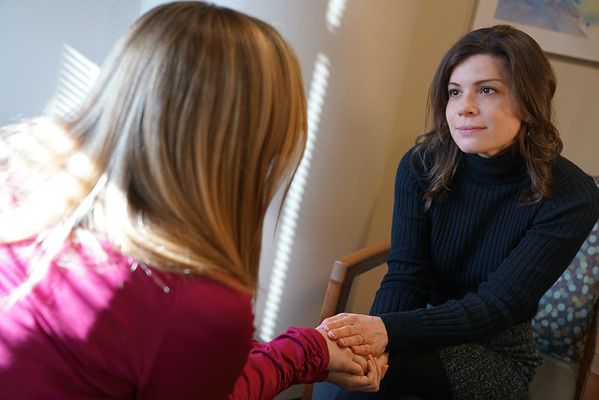No one is ever prepared to hear, “It’s cancer.” After adjusting to the shock of this news, it’s normal to have questions—and some anxiety—about how it will impact your life, such as:
Will I be able to continue working?
How will I get to the hospital for my treatments?
What if my family cannot care for me?
Unknowns about your ability to continue certain activities, the financial impact of your cancer, side effects of treatment, your role within the family, or even how to tell loved ones about your diagnosis can leave you feeling overwhelmed. Social workers are here to guide you through these challenging moments.
What are social workers?
We are licensed mental health professionals. We have expertise in counseling (individual, group and family counseling), psychosocial assessment, advanced care planning and community resources. We help make connections between the complex demands of your medical care and your social, emotional, and practical needs.
How can they help me?
Social workers provide supportive counseling to patients and families to help cope with the many emotions that come along with this experience. We can also help you communicate with your medical team to make sure you understand all of your options and feel informed and empowered when making treatment decisions.
We also help you with practical concerns, such as transportation, financial assistance, lodging, and planning for your post-hospital care. Whether you have just been diagnosed, are in active treatment, or are a cancer survivor, social workers can support you at any stage of your journey.
Contact the Department of Psychosocial Oncology to learn more about how a social worker can help you with the following:
- Counseling, including addressing parenting and family concerns
- Aiding communication with family and medical team, and interpreter services
- Advanced care planning and decision-making, such as naming a health care proxy, and preparing a living will or advanced directive
- Caregiver resources to help alleviate their burden
- Palliative care and hospice information and referrals
- Assistance with finance or legal concerns, applying for disability benefits, or getting information about health insurance
- Transportation arrangements and local lodging during treatment
- Post-hospital care planning
- Survivorship concerns
- Intimacy issues
Never miss another Cancer Talk blog!
Sign up to receive our monthly Cancer Talk e-newsletter.
Sign up!